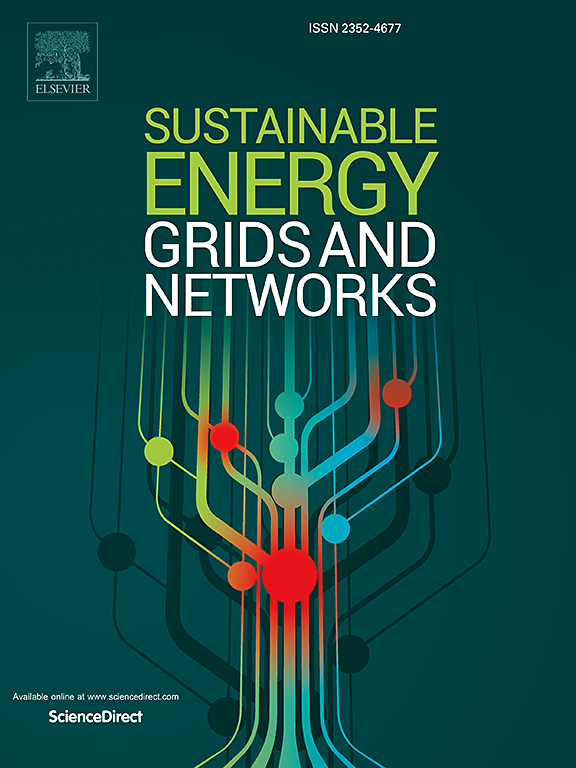以水力发电为主的电力系统的日前调度中负荷块转移的需求响应:对巴西大型案例的影响
IF 5.6
2区 工程技术
Q2 ENERGY & FUELS
引用次数: 0
摘要
电力系统的运行规划和调度旨在以最经济的方式满足系统负荷,既要管理负荷削减的风险,又要确保爬坡能力。通过探索风能/太阳能等可变可再生能源的大规模渗透,也追求灵活性。需求响应(DR)方案的出现是为了适应这种可变性,通过刺激或付费客户减少或转移他们的负荷,从而降低峰值价格,使每小时价格曲线更平滑。尽管DR对原始纯热系统的优势已在文献中广泛显示,但DR优化在主要水力系统中的量化效果尚未得到更好的探索,因为此类系统在运行中已经具有很大的灵活性。我们提出了一个混合整数线性规划应用的DR与负荷块移位为主的水电系统的提前调度模型,基于官方模型,用于调度和设置系统小时价格为巴西系统。该模型包括基于消费者提供的价格的负荷削减,以及负荷块转移,这包括具有时移灵活性但不具有负荷剖面灵活性的负荷的更精确表示。我们证明了该模型的性能在计算上是可行的,并评估了其对边际/总运营成本的影响。我们还评估了一些方面,如:报价之间的竞争和最优竞价点从客户的角度来看。给出了IEEE 14总线系统和实际巴西水热风系统的结果。本文章由计算机程序翻译,如有差异,请以英文原文为准。
Demand response with load-block shifting in the day ahead scheduling of predominantly hydro systems: Impact on the large-scale Brazilian case
Operational planning and scheduling of electrical systems aims to meet the system load in the most economical way, managing not only the risk of load curtailment but also to ensure ramping capability. Flexibility is also pursued by exploring the large penetration of variable renewable generation such as wind/solar plants. Demand response (DR) programs have emerged as an alternative to accommodate such variability by stimulating or paying customers to curtail or shift their load, yielding a reduction in peak prices and smoother hourly price curves. Even though the advantages of DR for originally pure thermal systems have been widely shown in the literature, quantification of the effects of DR optimization in predominantly hydro systems is yet to be better explored, since such systems already have a large flexibility in operation. We present a mixed integer linear programming application of DR with load-block shifting for the day ahead scheduling model of predominantly hydro systems, based on the official model that is used to dispatch and set system hourly prices for the Brazilian system. The model comprises load curtailment based on price offer by consumers, as well as load-block shifting, which consists in a more precise representation of loads that have time-shifting flexibility but not load profile flexibility. We show that the performance of the model is computationally feasible and assess its impact on marginal/total operation costs. We also evaluate some aspects such as: competition among offers and optimal bidding points from the customer´s point of view. Results are presented for the IEEE 14-bus system and the actual Brazilian hydrothermal-wind system.
求助全文
通过发布文献求助,成功后即可免费获取论文全文。
去求助
来源期刊

Sustainable Energy Grids & Networks
Energy-Energy Engineering and Power Technology
CiteScore
7.90
自引率
13.00%
发文量
206
审稿时长
49 days
期刊介绍:
Sustainable Energy, Grids and Networks (SEGAN)is an international peer-reviewed publication for theoretical and applied research dealing with energy, information grids and power networks, including smart grids from super to micro grid scales. SEGAN welcomes papers describing fundamental advances in mathematical, statistical or computational methods with application to power and energy systems, as well as papers on applications, computation and modeling in the areas of electrical and energy systems with coupled information and communication technologies.
 求助内容:
求助内容: 应助结果提醒方式:
应助结果提醒方式:


